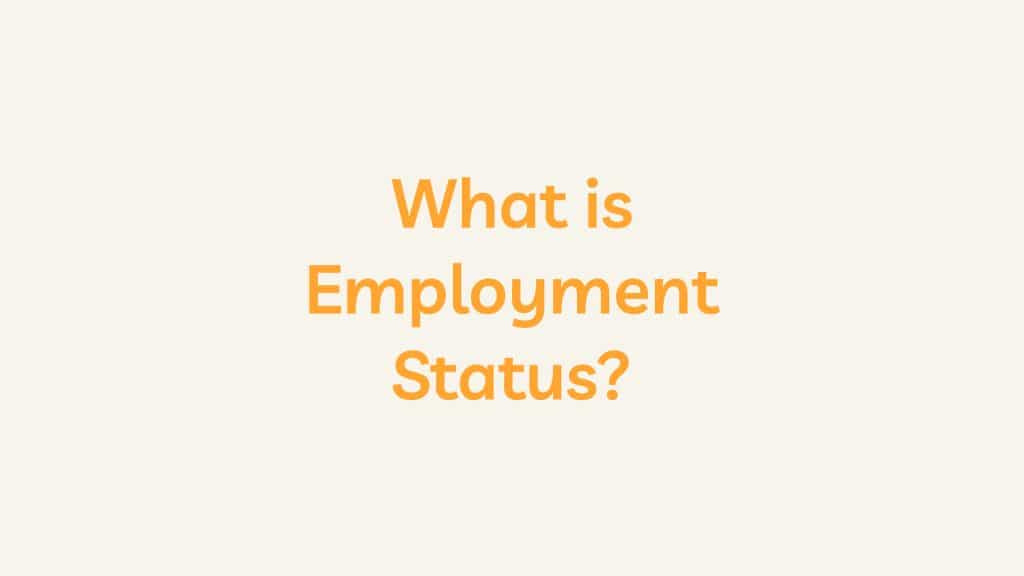Employment Status encapsulates an individual’s current standing in terms of employment or occupational engagement. This vital piece of information provides insights into whether a person is currently employed, seeking employment, or in a specific work arrangement. Understanding employment status is essential for various stakeholders, including employers, policymakers, and researchers, as it informs labor market dynamics, influences social policies, and guides workforce-related decisions.
Employment Status: Employed
- Full-time: Individuals who work the standard or expected number of hours defined by their employer. This often involves a commitment of 35-40 hours per week or more, depending on industry standards. Full-time employees typically receive benefits such as health insurance, paid time off, and retirement plans.
- Part-time: Part-time employees work fewer hours than full-time employees, often with flexible schedules. The number of hours may vary, but part-time work is generally less than the standard full-time hours. Part-time employees may or may not receive the same benefits as full-time employees.
Employment Status: Unemployed
- Unemployed: Individuals who are not currently working and are actively seeking employment. This category includes people who have recently lost their jobs, those entering the workforce for the first time, or individuals who have been out of work for an extended period.
- Underemployed: People who are working part-time or in jobs that do not fully utilize their skills or education. They may seek additional work or more suitable employment to match their qualifications.
Employment Status: Self-employed
- Entrepreneur/Business Owner: Individuals who own and operate their own businesses. This could involve managing a company, being a sole proprietor, or owning shares in a business venture.
- Freelancer/Contractor: Those who work on a project-by-project basis or have short-term contracts with clients or companies. Freelancers typically have more flexibility in choosing their projects and work schedules.
Student
Individuals in this category are primarily engaged in educational activities, such as attending school or pursuing a degree. They are not typically considered part of the labor force, as their main focus is on their studies.
Retired
Individuals who have formally left the workforce and are no longer seeking employment due to age or personal choice. Retirees may receive pensions, social security benefits, or other forms of retirement income.
Homemaker
Individuals, often but not exclusively women, who manage the household and take care of family members without formal employment. This role involves responsibilities such as childcare, household chores, and family support.
Disabled
Individuals who are unable to work due to a disability. This category includes people with physical, mental, or cognitive impairments significantly limiting their ability to engage in substantial gainful activity.
Conclusion
Employment status is a dynamic aspect of an individual’s life, subject to change due to various factors such as career transitions, personal choices, or economic conditions. It serves as a critical metric for employers, governments, and researchers, shaping policies, influencing social programs, and providing a comprehensive understanding of the diverse needs within the population. Recognizing the nuances of employment status contributes to developing effective strategies that support individuals across different stages of their professional journeys.
